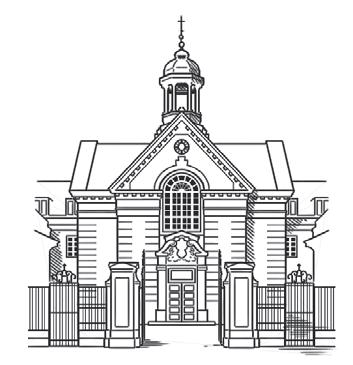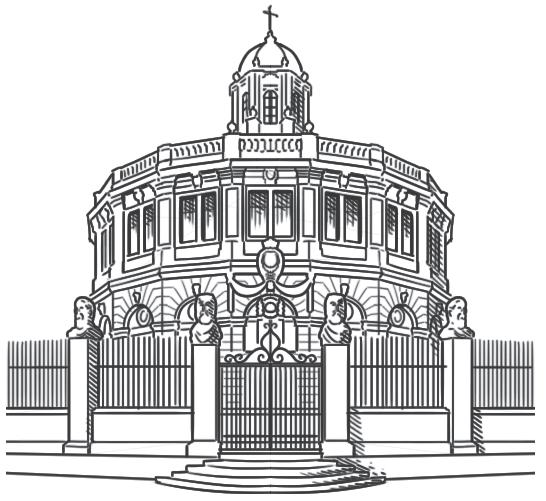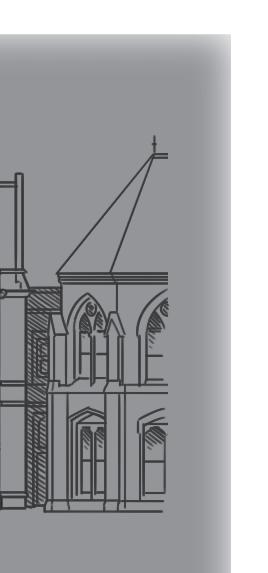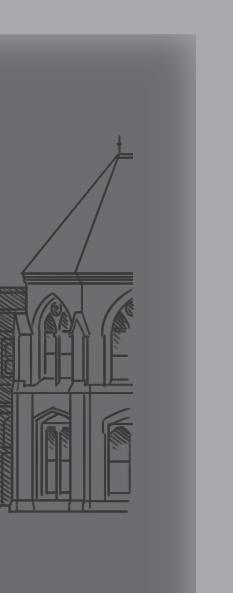

‘Entertaining, moving . . . I came to love these four women as though they were my sisters’
TRACY CHEVALIER
‘My book of the year’
JILL MANSELL


‘It will win many hearts’
JOANNA QUINN





‘Entertaining, moving . . . I came to love these four women as though they were my sisters’
TRACY CHEVALIER
‘My book of the year’
JILL MANSELL


‘It will win many hearts’
JOANNA QUINN


‘An entertaining and moving imagining of four smart women dealing with the engrained misogyny of the time. I came to love and admire the four as if they were my sisters’
Tracy Chevalier
‘My book of the year. The writing is wonderful, the subject fascinating and the storylines utterly absorbing. I’m so sad I’ve nished it. I loved everything about this book. I ADORED it’
Jill Mansell
‘I so enjoyed The Eights and became completely involved in the lives of the four pioneering heroines whose friendship is the beating heart of the book’
Clare Chambers, author of Small Pleasures
‘I loved this story of the rst women admitted to Oxford University – and its gorgeously written characters. Rooted strongly in time and place, this novel transports you’
Jennie Godfrey, author of The List of Suspicious Things
‘A story about women taking their place in a man’s world, The Eights beautifully captures the power of friendship and love in the wake of extraordinary loss. It was a pleasure to read’
Pip Williams, author of The Dictionary of Lost Words
‘These women soon become friends through the page and make me fondly and nostalgically recall that feeling of pure hope, wonder and fear as one stands on the edge of adult life simply wondering. Hoping. And wondering some more’
Emma Barnett
‘Heartfelt, thoughtful and engaging . . . Joanna Miller brings 1920s Oxford to life with a vivid immediacy and makes us care deeply about four young women who nd themselves pioneers in a strange new world, trying to nd a way forward in the aftermath of war. A thoroughly lovely debut that will win many hearts, with its celebration of friendship and the persistence of hope’
Joanna Quinn, author of The Whalebone Theatre
‘Engaging, warm and intelligent, this debut about the rst women students at Oxford – their deep friendship, and all they must face – is a delight!’
Lucy Atkins, author of Magpie Lane
‘I loved this book. A hugely entertaining and brilliantly written novel which gives us not one, not two but four incredible female characters to root for. Meticulously researched and impeccably crafted. An entirely delightful debut’
Anna Mazzola, author of The Clockwork Girl
‘Totally immersive and captivating. This is a GLORIOUS debut and the struggles of these four women felt incredibly real. Impeccably researched and beautifully written. I ADORED it. One of my books of the year for sure’
Julie Owen Moylan, author of That Green Eyed Girl
‘An impeccably crafted novel about four women struggling for equality in the 1920s that still feels painfully relevant today. It’s a story that encapsulates the power and beauty of female friendships and it will stay with me for a long time’
Josie Ferguson, author of The Silence In Between
‘What a debut. The four girls are so deftly and convincingly characterized – and it is easy to forget how di cult it was in this era for women to make their way. A must read’
Elizabeth Buchan, author of Bonjour, Sophie
‘A beautifully life-a rming novel with wonderful characterization. I was completely immersed in the atmospheric world of post-war Oxford that Miller has created, and rooting every step of the way for her four brilliantly inspiring heroines. I’ve no doubt it will be one of my books of the year’
Hannah Beckerman, author of If Only I Could Tell You
‘I wholeheartedly recommend this joyful read about the power of female friendship’
Good Housekeeping, ‘10 Hot Books to Read in 2025’
‘An ode to sisterhood and ghting misogyny’
Prima, ‘Debuts for Your Wishlist’
‘Dazzling and illuminating. A polyphonic story of sisterhood and solidarity, following four women as they cement their place in a world of men, and in history’
Lucy Steeds, author of The Artist
‘Charming, quietly devastating, the four young women at the heart of The Eights have stayed with me long after putting the book down. Joanna’s lightness of touch belies the tragedies and compromises women were confronted with amid the echo of the Great War, and how they fought for recognition and acceptance at Oxford University. A spellbinding, heartbreaking and utterly hopeful book’
Cathryn Kemp, author of A Poisoner’s Tale
‘A hugely atmospheric snapshot of Oxford at a momentous point in its history . . . Intriguing, clever and completely absorbing. The city itself was so cleverly drawn – I could feel the changing atmosphere of Oxford throughout the year . . . I absolutely loved it’
Carol Atherton, author of Reading Lessons
‘Such an enjoyable book. I loved its carefully crafted world and the focus on the abiding friendship between the four women, whom I came to think of friends myself by the end. It was moving, spirited and a lot of fun, much like the heroines of the novel’
Zoë Somerville, author of The Marsh House
‘I fell in love with this book from the rst chapter . . . It’s dripping with historical detail . . . What I adored most though was the life-a rming friendships . . . The true strength of this novel is the realization of how powerful female solidarity can be.
A joyous anthem to friendship’
Kate Thompson, author of The Little Wartime Library
‘The Eights has all the hallmarks of a modern classic! Beautiful writing and superb characterization evoking a hugely important time in our history that still resonates today. I adored this book’
Carole Hailey, author of The Silence Project
‘A triumph. Pin-sharp, atmospheric, a historical ction novel about four women admitted to Oxford University in 1920 – but also a sweeping tale of female friendship and the ght for equality in the wake of World War One . . . A stunning debut, a window into a world not so long ago, yet entirely di erent from our own’
Emma Cowing, author of The Show Woman
‘Witty and charming . . . An atmospheric testament to the power of friendship and the tenacious young women who led the charge for equality of opportunity’
Jessica Bull, author of A Fortune Most Fatal
‘Dark academia is everywhere but what about comfortreading academia? I utterly adored it . . . I know I’ll come back to this book in the future for guaranteed blissful reading. Fans of Quinn, both Frances and Joanna, will love this novel for a long time’
Naomi Kelsey, author of The Burnings
‘What a beautifully tender study of trauma and recovery – emotional without becoming over-sentimental.
I was rooting for the four women from the very rst page. What particularly impressed me was how Joanna Miller managed to convey the hurdles faced by women in that era while still writing likeable, well-rounded male characters . . . A glorious read’
Fiza Saeed Mclynn, author of The Midnight Carousel
‘A heartwarming and inspiring exploration of sisterhood and friendship, the guilt and grief of surviving the war and the human connections we need to keep living . . . I felt bereft when it ended’
Natalie Gregory, author of Mother, Ghost, Mangoseed
about the author
Joanna Miller was raised in Cambridge and studied English at Exeter College, Oxford. After a decade working in education, she set up an award-winning poetry gift business. She has recently graduated from Oxford again, with a diploma in creative writing. She lives with her husband and three children in Hertfordshire. The Eights is her rst novel.





































































































































































































































































































































































































































































































































































































































FIG TREE an imprint of
UK | USA | Canada | Ireland | Australia India | New Zealand | South Africa
Fig Tree is part of the Penguin Random House group of companies whose addresses can be found at global.penguinrandomhouse.com.
Penguin Random House UK , One Embassy Gardens, 8 Viaduct Gardens, London SW 11 7BW penguin.co.uk
First published 2025 001
Copyright © Joanna Miller, 2025
Map of Oxford copyright © Mike Hall, 2025
Excerpt from ‘The Last Day of Leave’ by Robert Graves (The Complete Poems in One Volume, eds. Beryl Graves and Dunstan Ward, 2000) is reprinted by permission of Carcanet Press, UK
The moral right of the author has been asserted Penguin Random House values and supports copyright. Copyright fuels creativity, encourages diverse voices, promotes freedom of expression and supports a vibrant culture. Thank you for purchasing an authorized edition of this book and for respecting intellectual property laws by not reproducing, scanning or distributing any part of it by any means without permission. You are supporting authors and enabling Penguin Random House to continue to publish books for everyone. No part of this book may be used or reproduced in any manner for the purpose of training arti cial intelligence technologies or systems. In accordance with Article 4(3) of the DSM Directive 2019/790, Penguin Random House expressly reserves this work from the text and data mining exception.
Typeset by Jouve (UK ), Milton Keynes
Printed and bound in Great Britain by Clays Ltd, Elcograf S.p.A.
The authorized representative in the EEA is Penguin Random House Ireland, Morrison Chambers, 32 Nassau Street, Dublin D 02 YH 68
A CIP catalogue record for this book is available from the British Library
HARDBACK ISBN: 978–0–241–66243–4
TRADE PAPERBACK ISBN: 978–0–241–73766–8
Penguin Random House is committed to a sustainable future for our business, our readers and our planet. This book is made from Forest Stewardship Council® certi ed paper.
Any great change must expect opposition because it shakes the very foundation of privilege.
Lucretia Mott, 1793–1880
Many would be cowards if they had courage enough.
Thomas Fuller, 1608–1661
Founded in the eleventh century, Oxford University is the oldest English-speaking university in the world. The rst colleges for men were established two hundred years later. The world-famous Bodleian Library opened in 1602 and over the next three centuries Oxford grew in renown as a centre of male academic excellence.
In the late 1800s, increasing numbers of women were drawn to the city seeking an Oxford education. Four independent colleges for women were established, along with a Society for Home Students.
Initially, women studied separately. It took years of negotiation before they were allowed to study in parallel with men, attending lectures in the company of chaperones. Despite sitting the same exam papers, they were not permitted to receive degrees, and male dons could refuse to teach them. Their achievements were, in many ways, invisible.
It was only after the Great War ended and women got the vote that things changed. In 1920, the rst cohort of female undergraduates took part in the ancient ceremony known as matriculation, making them full members of the university. Their admission was a cause of celebration for some and grievous disappointment to others. True equality was still a long way o .
Students are expected to wear the undergraduates’ gown and cap of the approved pattern for lectures and tutorials and when they enter any university building. This includes the university church and the libraries.
They are also expected to wear academic dress if they are out after dinner unless they are going by invitation to a private house.
They are required to wear for their examinations a special dress under the gown, namely, a dark coat and skirt and a white blouse with black tie. Shoes and stockings must be black.
On other occasions they are advised to wear under the gown either a dark coat and skirt or a dark coat frock. Bright and light colours are inadmissible.
Caps are retained where the male undergraduate removes his, for example in university ceremonies.
Caps and gowns can be ordered from Oxford tailors and from Messrs Ede & Ravenscroft, 93 & 94 Chancery Road, London. Students with the status of scholar should wear the scholars’ and not the commoners’ gown.
Miss E. F. Jourdain, Principal
The square cap, made of wool, is an odd sort of thing. Floppy, but pointed at four corners, there is no brim, just a thick felt band secured by a button on either side. Does the band go at the front or back? She has no idea. All she knows, is when she puts it on, she resembles a rotund Tudor courtier in a Hans Holbein portrait, which is surely not the intended e ect.
Strange little cap or no, Beatrice Sparks can hardly believe
that she has woken up somewhere other than the cluttered town house in Bloomsbury that has been home for the last twenty-one years. When she said goodbye to her father last night, she felt like a sheet of paper folded in half and torn roughly along the crease. Two smaller versions of herself exist now, each with an edge that is unde ned and feathery. Her rst day at St Hugh’s is an opportunity to rewrite one of these pages. The mirror on the bedsitter wall is so small that she is forced to back all the way across the room in order to get a glimpse of herself in her commoners’ gown. Sold by mail order, the gown sits at her waist rather than the regulation hip and cuts tightly into the shoulders of her jacket; she will simply have to buy a man’s size instead. But she is used to the accoutrements of life being ill- tting; last night, as she tried to sleep, her feet tangled repeatedly with the cold metal rungs of the bedstead. Nobody could ever label Beatrice an average woman; she has inherited her six-foot stature from her father and her hearty appetite for politics from her mother.
To be the daughter of a former student of the college is something, she supposes. A militant su ragette, disciple of Mrs Pankhurst and alumna of the hunger-strike brigade, Beatrice’s mother is a woman of considerable renown, who believes in equality for women in education. Hence, there was never any doubt that Beatrice would apply for Oxford, regardless of whether or not matriculation was possible. Thankfully, to her mother’s satisfaction both those expectations have become a reality. Most women (and men) are intimidated by Edith Sparks and, as Beatrice knows to her cost, she is a hard woman to please. Fortunately, after more than twenty years of marriage, her husband is still besotted.
Today is unusual because Beatrice is not the sort of person that history happens to. She has certainly witnessed it in the making – her mother has seen to that – but usually from the
sidelines. Beatrice may be uent in Ancient Greek, propagate orchids in her own greenhouse, attend debates in the House of Commons, and type begging letters on behalf of Serbian orphans, but she has never lived alongside other young women. An only child, she has the singular quali cation of having absolutely no friends her own age. What she has discovered of friendship comes from observing her mother’s relationships. It occurs to her that these are rather like cocoa; some are too strong, some too weak, and some spoil if left too long. Some even burn the tongue.
Glancing through her ground- oor window, she watches a lone wood pigeon pace the lawn, as if it has lost something, its purply-grey plumage distinct against the wet grass. As she swallows the cold egg on toast the scout has left in an approximation of breakfast, she hears mu ed movement in neighbouring rooms. She supposes the other occupants of Corridor Eight must also be forcing balls of toast down dry throats, buttoning too-tight white blouses, adjusting black ties, and shaking the creases out of academic gowns. Like Beatrice, they will walk to the Divinity School in the heart of the city, where at ten o’clock, they will be among the rst women to matriculate at Oxford University.
‘Good morning. My name is Beatrice Sparks,’ she says to her re ection.
She takes a deep breath and reaches for her cap.
In the adjacent room, Marianne Grey is considering how to tell the principal of St Hugh’s that she intends to abandon her degree course after just one day.
Despite the fact that the college was built for purpose only four years ago, Marianne’s corner room with its two exterior
walls is undeniably draughty. As if resenting her presence, the mattress exhaled cool air last night as she tossed and turned, and an itchy patch of red scale threatens on her left index nger. Unfortunately, her exhibition of twenty pounds a year, while very welcome, will not stretch to extra buckets of coal so she must make do with the twice-daily res laid by the scout – if she decides to stay, that is. Her choice is this: remain at St Hugh’s to ful l her life’s ambition and continue to build lies upon lies, or give up the whole wretched scheme entirely and go home to the rectory, exercising her brain for the next three years teaching Sunday School and composing the parish newsletter.
She wonders what her father is doing right now. Preparing his sermon, perhaps, or eating a breakfast of crumpets loyally smothered with the appallingly tart gooseberry jam she made over the summer. Mrs Ward, who has Thursdays o , will be taking her granddaughter to visit friends in Abingdon.
Marianne glances at the solitary postcard propped on the mantelpiece featuring Rossetti’s Proserpine curved shyly around a bitten pomegranate. Like the goddess of the underworld, Marianne has given in to temptation (the lure of three years of study, in her case) and must pay the price of being separated from home for half the year, although that is where the similarity between them ends; Marianne is well aware she is no goddess or romantic heroine. She may have been christened after Jane Austen’s Marianne, but she has none of her namesake’s passion and energy. Sadly, she has far more in common with Tennyson’s Mariana, a miserable woman shut in a tower, wishing and waiting until it drives her quite mad. Neither character, she is sure, was bothered by the price of coal – or by chilblains.
Glancing in the mirror, she sees an unremarkable woman with hooded eyes, at chest, and hair the pallor of weak tea. A
woman dressed in a second-hand academic gown and shoes that don’t quite t, trying out a life that isn’t quite hers. *
In the room opposite Marianne’s, Theodora Greenwood, known to her family and friends a ectionately as Dora, is congratulating herself on meeting the simple dress code of sub fusc although careful inspection of her attire will reveal an artfully tied black ribbon at her neck, and a silver brooch with diamond chip at her lapel. Her waist-length hair is tightly pinned, all strands accounted for.
How easy life would be, she muses, if she were as neat and tidy on the inside. If her brother could see her now, he would laugh at her square cap, call her an old maid, and pull it down over her eyes. Poor George, who ought to have graduated from Jesus and be running the printworks with Father by now. But then, had George survived Cambrai and all the varied opportunities for death that followed, she would not be sitting here at all; their father would never have permitted it. A di erent version of Dora – provincial Dora – would most likely be spending her days pouring tea, playing whist, or being paraded at church (Do not mention novels, Dora ).
But George did not survive Cambrai and Dora is the keeper of their childhood now, the curator of their childhood games, the silly notes, the sel sh arguments. Even after three years, it is hard to accept that George and his restless bravado no longer exist. That, like thousands of others, he ran daily into a barrage of hot lead, blade, and shell until his esh was blasted from his bones. How is it that her handsome, spoilt brother who smelt of grass and sweat and cigarettes, who swore blind her ball was out when it was plainly in, who only wrote her a single letter in his life, can no longer exist?
Unfortunately, she has letters enough to weep over; pages of crooked handwriting smudged with tears and refolded so many times the seams have given way to dust. All written by Charles, to whom, if life were not so despicably cruel, she would now be married. Charles who was to read Law at Queen’s. The most popular cadet in the garrison who chose her (her!) from all the other girls in town. Charles who, when he led Dora into the bracken, made her feel so alive, so alert, so open to possibility that the plain, ordinary world she knew became a dizzying, shimmering place. Even now, she can conjure the sweet fruitiness of his mouth, the warm breath teasing her neck. Had Charles lived, she would never have wanted to study at Oxford. She would never even have considered it.
So why is she here? So many reasons: to become closer to George and Charles; to escape her mother’s overbearing grief and reliance on her; to read and study and play sport as if she were back at school again before everything fell apart; and because she cannot sit at home and become a lonely old maid in a Hertfordshire market town without at least trying to meet somebody new – even if she cannot summon an ounce of interest in any man except the one she cannot have.
As grief knots in her temples and throat, Dora places the lid on the battered cigarette tin where she keeps her hairpins and busies herself rearranging her tennis shoes and hockey boots at the bottom of her wardrobe. She refolds her girdles, stockings, slips, drawers, and chemises in her dresser and removes the tissue-wrapped corset (her mother’s parting gift) and places it under a blanket at the back of the wardrobe. Then she reorders the novels on the shelf into alphabetical order, recalling the pleasure she took in sorting, classifying, and reshelving the stock in the library where she volunteered during the war. Restoring order from chaos, as in a Shakespeare play.
Soon enough, it is eight o’clock, and through the window
she notices that women are already assembling outside the lodge. Glancing at Charles and George on her exit, she walks briskly along the hallway and out on to the busy central corridor that links the west wing of the college to the east. Just ahead of her, a tall woman with broad shoulders is striding along humming to herself, every so often pausing to yank at the gown sliding down one arm. Dora cannot help but wonder if this woman’s heart is pumping as furiously as her own and whether she, too, is here to make a fresh start.
Unlike the others, Ottoline Wallace-Kerr did not sleep in the college last night, but stayed at her aunt’s house, in the Norham area, with her sister Gertie. They dressed up for dinner, drank cocktails, played backgammon – a last blast before matriculation. Gertie is always keen to leave her children with Nanny and that dereliction of duty is why Otto keeps having to pinch the spot between her eyes to stave o a headache. The family have absolutely no idea why she is seeing this through when she does not have to. Her mother, furious that Otto refused Teddy’s proposal, has not asked once about Oxford. Her father calls her his ‘Bluestocking Bismarck’ and has never taken her studies seriously. To her parents, Otto is the daughter most likely to laugh at a joke about herself and the rst to say, ‘Let’s go out.’ What they do not appreciate is that there is a dead weight inside her that just will not budge in London. If she remains, Otto imagines it dragging her thrashing to the bottom of the Thames. Oxford is her lifebuoy. The morning is misty, and Gertie insists on driving her over to St Margaret’s Road. It is a gesture kindly meant, but Gertie’s driving is an acquired taste; even her husband Harry is terri ed by it, and he made it through the Somme.
‘Here we go, darling,’ says Gertie, pulling up to the gates. ‘Gosh, it looks rather like a prison. I’ve a mind to kidnap you and drive you straight back to Mayfair.’
Some of the assembled women turn and stare.
‘Oh, do shut up, Gert,’ says Otto, jumping out. ‘You’re just jealous.’
‘Perfectly jealous. I’m spitting with envy over your delectable cap. Do buy me one for Christmas.’
‘See you for lunch,’ says Otto, blowing her a kiss.
Otto enters the gates and looks about for the person in charge. Although she has attended dozens of parties alone, among these sober-looking virgins she is unaccountably jittery. She stands to one side, groping in her pocket for one of the several parting gifts Gertie has given her, a cigarette case engraved with a racing hound at full gallop. It alludes to their old headteacher who often described Otto as being in a perpetual state of motion. Ottoline rarely sits for long, unless it is to complete complex calculations, something which she does with formidable ease and enviable accuracy, read her nal report.
It is true that mathematics provides moments of absorption and calm for Otto that she cannot replicate by any other means. Even when sleeping, she has the sense that there is somewhere (or someone) else she ought to be. She adores the clarity of mathematics, the certainty of right and wrong. No droning on about di erent interpretations or writing essays that go around in circles. And of course, being born on the eighth day of the eighth month, eight is her favourite number.
And now, two years after the idea of studying at St Hugh’s rst came to her, Otto has been allocated a room on Corridor Eight. An auspicious start indeed.
FIRST-YEARS – ST HUGH’S COLLEGE, 1920
Miss Florence Alderman Modern History
Miss Josephine Bostwick English
Miss Patricia Clough Modern Languages
Miss Sylvia Dodds Modern History
Miss Joan Evans Modern Languages
Miss Elizabeth Fullerton-Summers Modern History
Miss Theodora Greenwood English
Miss Marianne Grey English
Miss Yvonne Houghton-Smith Jurisprudence
Miss Esther Johnson Modern Languages
Miss Phyllis Knight English
Miss Katherine Lloyd Modern Languages
Miss Ivy Nightingale Lit. Hum.
Miss Rosalind Otley-Burrows Modern Languages
Miss Beatrice Sparks PPE
Miss Norah Spurling Modern History
Miss Celia Thompson-Salt English
Miss Temperance Underhill English
Miss Ottoline Wallace-Kerr Mathematics
Miss Ethel Wilkinson Modern History
Miss E. F. Jourdain, Principal
Dora glances at the women assembled alongside her in the courtyard. Although nobody looks particularly clever, the group is an eclectic mix of shabby coats, expensive tailoring, unbrushed hair and carefully pinned curls. The air smells reassuringly of Pears soap and lavender water. She wonders how her brother George felt on the morning of his matriculation; no doubt he was already great pals with everyone and was nursing a headache from too much wine the night before.
‘Congratulations to you all on this momentous occasion,’ says a watery-eyed tutor with a tremulous voice who introduces herself as Miss Lumb. ‘I will be your chaperone on the walk to the Divinity School. Our crocodile will depart early today. There may be crowds and press, so the principal, Miss Jourdain, wants us there in plenty of time.’
Behind Miss Lumb, a gaggle of older students whisper like excited theatregoers.
‘Please arrange yourselves according to corridor,’ says Miss Lumb, pointing to di erent corners of the courtyard. ‘Corridors Four and Five gather here, Six here, Seven here, and the Eights over there. Your corridors will provide your walking – and cycling – companions for the next few weeks while you orientate yourselves.’
Dora nds herself standing between two young women who introduce themselves as Beatrice Sparks and Marianne Grey. Beatrice, the girl Dora followed down the main corridor, pumps Dora’s hand enthusiastically. As well as being immensely tall, Beatrice has an indistinct jaw, curious eyes and ruddy cheeks. Her ngers are dappled blue with ink. Marianne, in contrast, has a long neck and pale, freckled face. She looks fragile and insubstantial, like a handkerchief worn over time to a mesh of delicate threads. It is strange to think these are the people Dora will spend every day with for the next eight weeks.
A petite woman with skilfully drawn lips ambles over to join them. She has bobbed hair the colour of wet terracotta and is at least a foot shorter than Beatrice. She could have stepped straight from the society pages of one of Dora’s magazines.
‘Hello, neighbours,’ says the redhead, o ering a limp hand. A cigarette dangles from her mouth and Dora wonders at her audacity to smoke in public.
‘Ottoline Wallace-Kerr,’ she says. ‘But you can call me Otto.’
Dora recognizes the surname from the nameplate above the door next to hers. This means all four rooms on Corridor Eight are now accounted for.
‘Good morning,’ says Beatrice cheerfully. ‘My name is Beatrice Sparks. Oh, and this is Dora and Marianne.’
‘Sparks, I like it. Good name for a brainy sort,’ says Otto, directing a plume of smoke over Beatrice’s shoulder. She casts an appraising eye over the other women in the courtyard before raising a single pencilled brow. ‘Well, tally ho, then.’
And the procession is o , ling out of the gates and on to St Margaret’s Road, with the Eights bringing up the rear.
All about them, Oxford is rising. On Banbury Road, omnibuses snort their way towards Cornmarket, bicycles rattle past, and hotels shake out their guests and laundry. On St Giles’, male students emerge from sandstone walls to join the swell of movement southwards. Dora is mesmerized by how their mortar boards dip and tilt, the silken tassels swinging. It occurs to her that the women, walking in pairs behind Miss Lumb in their oppy woollen caps, bear a striking resemblance to schoolchildren on an outing.
The crowd about them throngs with boisterous conversation and it is hard to make oneself heard. Some men smile and stand aside gallantly for them, while others shout greetings
to each other across the women as if they were not there. Beatrice, walking beside Dora, frequently taps her on the arm to point out important sights, such as the Ashmolean (which Dora knows) and the Lamb and Flag (which she does not) where Hardy wrote parts of Jude the Obscure. In front of them, Otto’s satin boots with their diamanté buckles trip along the pavement while Marianne appears to have newspaper caught in one of her heels. Neither of them says a word.
On the corner of Broad Street, Otto stops to light another cigarette and the four women pause while the rest of the crocodile continues without them. Dora takes the opportunity to reposition her cap, poking unwilling pins back into the resistant mound of hair beneath. A few of the men stare as they pass by, one venturing a ‘good morning’ that causes her to blush and dip her head. When she nally looks up, her breath catches in her throat, and she wonders if she is going mad. Not twenty feet in front of her is her ancé, Charles. He is right there, with his thick brown hair and rutted chin, laughing in the midst of a group of young men surging up Broad Street. Her vision blurs and though she wants to call out, to cross the street and force her way through the mass of bodies, her shock is such she cannot move. Then the man turns to speak to his friend and, with a plummeting sense of folly, she realizes that he looks nothing like Charles. This stranger is older, moustached, sallow-featured. Of course it is not him. Her Charles lies somewhere in France in an unmarked grave, perpetually eighteen – she knows that. And yet for some reason she cannot fathom, he insists on appearing everywhere she goes.
As if the morning were not strange enough. Three days ago, Dora was in a market town, batting balls at the tennis club with the twins, her mother bemoaning the defection of the scullery maid to a tinned-food factory. Now here she is, about to matriculate at Oxford University. Making history in a
world where, Dora wonders, there has surely been enough history made already.
Otto takes a long drag of her cigarette, then nods her head in the direction of the Bodleian, and they set o again, absorbed back into the current. Marianne wonders if now is the moment to slip away to catch the late-morning train back to Culham, then reluctantly quashes the idea. It would cause an awful fuss if she simply disappeared and she does not want to ruin such an important day for the others. There is nothing else for it; she will have to go through with the ceremony.
The rest of the crocodile is at least fty yards ahead, but before the Eights can catch up, a large group of undergraduates spill from the entrance to Balliol College into their path. It is a lively scene; from a window above the college lodge, two students provide witty commentary via a megaphone, mocking individuals below for their looks or lack of drinking prowess.
It is obvious to Marianne that the men milling about on the pavement ahead are freshmen. Not only are they wearing sub fusc, but most are too young to grow a decent moustache and cannot possibly have served in France. It is comforting to see this new, untarnished generation going out into the world. They remind her of the edgling magpies that gather on the green at Culham; handsome, strutting, and clever, but not quite ready to leave the ock.
Without warning, the megaphone turns its attention to the Eights. ‘Look out chaps, the Amazons are here.’
The Balliol men turn to stare curiously at the women.
‘I say,’ croons the megaphone, ‘what on earth are they wearing on their heads?’
The men laugh, delighted, and converge around Marianne and her companions, hungry for entertainment. As she glances about her, all Marianne can see are rows of leering faces and white bow ties. Her heart begins to heave recklessly in her chest. They are trapped.
‘Nobody will marry you now, ladies!’ shouts one of the freshmen, and the crowd responds with wild applause.
A distant memory surfaces in Marianne’s mind; village boys cornering a shuddering harvest mouse and poking it to death with sticks. She squeezes her ngernails into her palms to avoid grabbing at the locket concealed beneath her blouse.
‘Anyone need a button sewn on?’
‘They’ll be in the Union next.’
‘It’s enough to send a chap to Cambridge.’
And on it goes, the men cheering, whistling and jostling, pleased with themselves. Marianne looks about in vain for someone to step in and defend them – a proctor or a porter, perhaps – but nobody comes to their aid. Her companions appear equally stunned. Horns honk, bicycle brakes screech, and the earth spins away, regardless.
It is Beatrice who acts rst. ‘Take no notice,’ she says, her round face ushed. She pushes through the crowd towards the edge of the pavement. Otto follows her.
‘Let’s go,’ whispers Dora to Marianne.
But before Marianne takes a single step, the megaphone starts up again. ‘Oh, please don’t leave us,’ it calls after Beatrice. ‘We could do with a strapping girl like you in the boat race.’
Otto halts. ‘Hold on just a minute,’ she says, and marches back into the centre of the crowd. She turns a full circle, slowly scanning the men’s faces, her eyes narrow and mocking. ‘Is this what the men of Balliol consider sport?’ she says, gesturing towards the window. ‘Insulting women who probably beat you hands down in the Oxford Senior? What utter bores you
are.’ She icks her cigarette butt, crimson-kissed, at the men’s feet. ‘I’ll make sure I pass on your observations to the Master when I dine with his family next week. His daughters are particular pals of mine.’
Otto, with her angular, painted face, is clearly aware of the impression she makes. Her gardenia scent hangs, like her words, in the air. The men titter uncomfortably and Marianne is taken aback by her boldness. Nobody speaks for a moment, then Otto’s spell is broken by a gawping freshman who staggers forward and trips on the lip of the pavement. He ails for a second, then topples to the ground, grabbing at Marianne’s skirt on the way down. She is jolted forward with such force that stitches rip at her waistband. She lands hard on her knees, then pitches sideways, putting out her hands just in time to stop her head from hitting the kerb.
‘I think she’s fallen for him,’ sings the megaphone.
The crowd begins to whoop. Marianne lies dazed on the lthy pavement among the cigarette butts and dead leaves, surrounded by a wall of trousered legs and polished brogues. She tries to right herself but her legs and skirt are tangled somehow and she cannot move. Then someone grasps her by the arm – Beatrice – and pulls her to her feet. Her hands are imprinted with grit from the gutter. The laughter continues and her cheeks burn with shame.
‘You utter bu oon,’ says Otto, glaring down at the freshman.
‘So terribly sorry,’ he stutters, before scrambling to his feet and disappearing into the crowd.
Dora steps forward. ‘It’s Marianne, isn’t it? Are you hurt?’ She takes Marianne by the arm, brushing detritus from her gown. ‘I’m afraid your skirt needs washing. Here, I have your cap.’
‘I’m ne,’ Marianne says, although she can feel the sting of a graze on her palm and wishes she could lean on something. This is not how she imagined Oxford; not as a place where
women are mocked and derided for wanting to learn. She tries to replace her cap but part of her hair has escaped the pins and is hanging loose about her neck. Her knees are throbbing and her skirt is wet with what may well be horse dung. Thankfully, the megaphone has fallen silent and the freshmen, now bored, wander o down the road, gowns apping behind them.
‘I’m so sorry, Marianne,’ says Beatrice. ‘Are you all right?’
Otto yawns. ‘Silly, silly, little boys.’
A bell tolls nine overhead. Thankfully, there is still an hour before the ceremony begins. In the melee, they have lost sight of Miss Lumb and the group from St Hugh’s. The others wait as Marianne attempts to brush herself down. She wonders if they can see her hands shaking.
‘I have to ask, do you really know the Master of Balliol?’ Beatrice says to Otto.
‘Never met him,’ replies Otto with a grin.
‘Well, it was a jolly good b.’ Beatrice turns to Dora and Marianne. ‘The Master of Balliol is A. L. Smith.’ They look at her blankly. ‘The education reformist? He believes Oxford should be open to all.’
Otto turns to Marianne. ‘If you don’t mind me saying, you look almost transparent and I’m certain ghosts can’t matriculate. You need tea. Sugary tea. My treat, and I simply won’t be dissuaded.’
Marianne tries to protest, but when Otto ignores her and takes her arm, she is grateful for it. All she wants to do is get o the street and have a moment to gather herself.
Otto pokes a nger under the rim of her cap, and scratches about in her coppery bob. ‘One thing those boys got right,’ she says, ‘is that these caps are utterly hideous.’ She waits for a shoal of bicycles to pass and shepherds Marianne across Broad Street to a door leading to an upstairs tearoom, the others following.
The four women le up the narrow stairs to the Good Luck Tea Rooms and the door jingles shut behind them.
In the ock-wallpapered WC of the café, Marianne rolls the grey cake of soap around her hands, taking as long as she can. Through the open window, she hears ill-matched bells tolling a quarter past nine. They sound like spoons hitting copper pans. For a moment, she is back in St Mary’s counting the hymn books for worship, inhaling the musty odour of the pages. The cool air settles on the nape of her neck, her ngertips brush the varnished pew tops. And then the nausea returns. That she fell in the street is not important; what matters is that she has left her father to manage alone. Mrs Ward will ensure he has clean clothes, but who will type his letters and sermons, organize the ower rota, bank the o ering now that she is gone? And what if he can cope without her? What does that say about her? Marianne has never lived away from the rectory or brushed out the tightly braided strands of her life that it holds secure. Although she is not hurt and no longer shaken, what happened just now merely reinforces that she does not belong here. She locates her locket through her blouse and presses it hard into her sternum, resolving that she will leave Oxford that very afternoon.
Taking a fresh piece of folded newspaper from her pocket, she replaces the torn piece at the back of one of her shoes. Bought second-hand from a market stall for special occasions, they have always been too loose, and after all the walking a blister is blooming on her heel. She returns to the table, greets the others with a nod, and takes the empty seat next to Dora who keeps glancing out of the window. Otto and Beatrice act as if they frequent teashops every day of the week. They talk
and talk, as if there is a requirement that every lull in conversation must be crammed with words. Londoners are exhausting, thinks Marianne.
Dora turns to her. ‘Do you think the others will be looking for us?’
‘I expect so,’ replies Marianne. ‘I’m sorry, it’s my fault we’re here.’
‘It isn’t. Not at all,’ smiles Dora. ‘I just wonder whether we should be such rebels on our very rst day. It’s the head girl in me, I’m afraid.’
Together they watch an omnibus shudder past in the street below. A road sweeper pushes a steaming knot of manure into a heap, only for a delivery boy to cut through it on a bicycle. How conspicuous we are, Marianne thinks, sitting here in sub fusc, among the elderly patrons ordering eggs and bacon. She tries to swallow down the queer lump that has been lodged in her throat since she arrived last night.
When there is nally an opportunity, Dora says to the table, ‘I say, do you think Miss Lumb will be wondering—’
‘Oh, we’ll only be ten minutes,’ says Otto, dismissing Dora with a wave of the hand. ‘I’ll order four teas – or would you prefer co ee? No? Four teas it is.’ She calls across the room to a waitress. ‘Hello there!’
Marianne has never frequented a tearoom for only ‘ten minutes’ as if it is a mere convenience. Her father would be amazed. The waitress weaves between the tables, notebook bouncing on a string at her waist. Each table is set for four, with a pink carnation at the centre. Nearby, a man is holding a copy of the Daily Mail. The headline reads ‘A Million Women Too Many, 1920 Husband Hunt’.
‘Oh, it’s Miss Wallace-Kerr!’ says the waitress, arriving in a waft of hot milk and carbolic soap, her expression bright with recognition. ‘You’re a sight for sore eyes.’
‘Hello, Betty, how are you?’ replies Otto.
‘Can’t complain. My eldest made it home, you won’t know that. He’s at the Morris factory.’
‘I’m delighted to hear it.’ Otto glances around the table. ‘I was a driver in Oxford during the war. Betty here looked after me.’
‘Miss Wallace-Kerr was very kind when I lost Ernest, my youngest,’ says Betty, her eyes lling with tears.
As they o er their condolences, it is hard not to notice that Betty’s eyeballs are the colour of mustard. Jaundice, thinks Marianne, and tries not to imagine poor Betty’s liver twisted and bulging under her pristine apron.
‘I often wondered about you, miss,’ says Betty. ‘When you stopped coming in, I thought the worst. I said to my friend, Miss Wallace-Kerr’s gone to France or something.’
There is a momentary tightening around Otto’s lips. ‘The job was only for six months. The parents wanted me home. It was remiss of me not to say goodbye, do forgive me.’ She taps the menu with a varnished nail. ‘Anyhow, we’re in a bit of a hurry. We have a ceremony to get to. I’m sure you understand. Four teas, please.’
‘Righto,’ says Betty, scribbling on her notepad.
‘It really is very good to see you again,’ says Otto, softening, and Betty, dismissed, gives a little curtsy.
Marianne is fascinated by Otto’s clipped vowels and the way she pronounces every syllable so cleanly, as if she is determined to suck every morsel from it. Beneath her gown, Otto wears a tight- tting velvet jacket, her eyebrows plucked into high arches that accentuate the angles of her face. Marianne is reminded of her neighbour’s sleek little dachshund, unpredictable and imperious.
They gulp down the tea that Betty brings, discussing the subjects they are studying and how lucky they are that Ancient Greek is no longer required. Beatrice is taking a new course